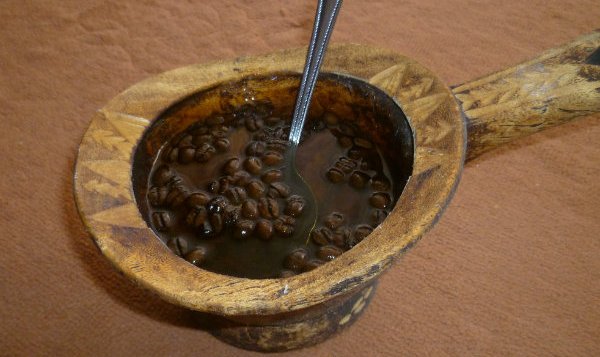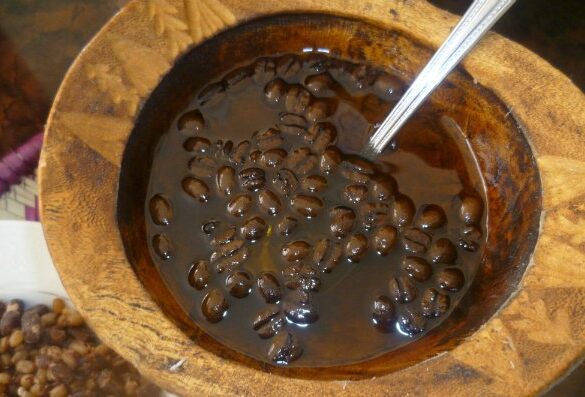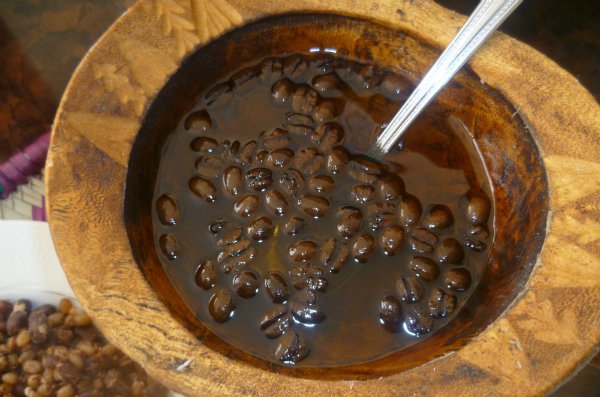Fried coffee? I know what you are thinking! It sounds weird, right? But let me tell you the taste is incredible and Somalis have some interesting stories that we associate with the bean.
My beloved maternal grandparents introduced me to fried coffee beans at the tender age of five. This special dish was offered during meditation sessions called dhikr, an Islamic form of devotional chanting in praise of God. Somehow to this day, the smell of coffee brings to mind the sonorous, repetitive and ancient sounds of sacred chant, and I get instantly transported to a state of mental clarity.
The dhikr group would sit on a mat and the coffee would be served floating in oil in a kurbin, a special wooden bowl. The kurbin would be passed around and we would start with a deep and appreciative sniff of the wonderful aroma, and then ladle a spoonful of the coffee onto the palm, chew the beans, and then rub the scented oil over our faces. This was part of the ritual and was said to prepare the person to face the world.

Sometimes sugar is added to the bun to sweeten it. Bun is also often eaten with popcorn or a simple dish of boiled azuki beans known as cambuulo.
Coffee beans are called bun in the Somali language, and buna in Oromo and bunna in Amharic, the two other main languages of Ethiopia, the home of coffee.
Somalis also associate bun with rites and spirit possession practices that hint at the ancient beliefs of Somalis. Ceremonies are held by a ritual expert, calanqad. Dancing, drumming, bun and the burning of incense are used to enhance the senses of participants. The spirit descends on the host under various names, sometimes speaking in different languages. Men and women participate in a ceremony called mingis, but women have their own ceremony called saar. If the spirit is vexatious, an exorcism is conducted by the calanqad. Not all spirits are cast out. Some become friends of the possessed person and are sometimes inherited by the children.
Fried coffee beans also play a central role in ceremonies women hold to pray for the safe delivery of a pregnant friend. The oil used to fry the coffee beans is applied liberally on the head and hair of the pregnant woman as the women pray and sing for their friend.
The Oromo people of Ethiopia, a Cushitic tribe like the Somali, also have a fried coffee ceremony. The outer skin is snipped off the coffee beans and words of blessings are uttered in a ritual known as buna-chiru, which signifies sacrifice to honour a guest or for a ceremony.
Don’t forget to moisturise your face with some of the coffee flavoured oil!

Fried coffee, anyone? (Bun Soomaali)
Ingredients
- 1 cup of whole coffee beans
- ½ cup vegetable oil
- 2 – 3 tablespoons of ghee (clarified butter)
Instructions
- Wash and dry the coffee beans with a clean cloth
- Heat up the oil and once hot quickly fry the coffee beans for about 20 minutes or until brown and fragrant.
- Add a few tablespoons of ghee and serve the fried coffee beans in a kurbin.
INFO
Author : Abderazzaq Noor
Recipe by : Halima Sharif

